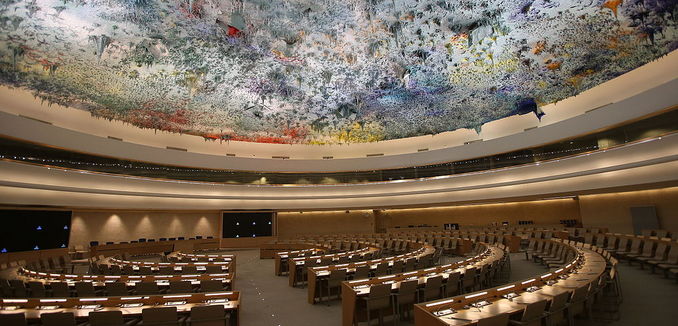Israel is not at the center of the bloodshed in the Middle East; instead, the Islamic Republic of Iran connects many of the region’s “trouble spots,” TIP CEO and President, Joshua S. Block, argued in an op-ed published in The Jerusalem Post on Monday.
“Of all the policy myths that have kept us from recognizing the true nature of conflict in the blood-soaked region, one stands out for its fatality and perpetuation: the idea that if only the Israeli-Palestinian conflict were solved, all the other deep-rooted quandaries facing the Middle East would magically disappear,” Block said.
Referring to the Arab Spring, which led to a series of popular uprisings in Syria, Libya, Egypt and Tunisia, Block stated that those events “should have destroyed the ‘linkage’ dogma once and for all.” Yet the perception that “the Arab world resolves around the Israeli-Palestinian conflict lives on.”
Moving forward, Block invited the reader on a tour of the Greater Middle East. “The industrial-scale killing machine of the Assad regime in Syria, sustained by Iran and Russia? Unrelated to the ailing Israeli-Palestinian peace process,” Block explained.
He added: “Yemen on the brink of starvation? Nothing to do with the Jewish state. The power struggle between Sunnis and Shi’ites that rips apart entire countries? No. The rise of Islamic State? All unrelated.”
Block argued that while it was important to find a solution to the Israeli-Palestinian conflict and recognized that “reactionary elements” exploit it to incite violence, the Middle East would still face many of the same problems in the event of a peace agreement between Israel and the Palestinians.
The reason for that is the central role played by Iran and other hostile players in the destabilization of the entire region and beyond.
“Even if the conflict ended today, the mullahs in Iran wouldn’t give up their nuclear ambitions,” Block said. “The Assad regime wouldn’t stop dropping chemical agents on children. And terrorists, driven by a desire to purge the Middle East of infidels, would still slaughter innocent Jews, Muslims and Christians,” he added.
Consequently, Block argued that “if policymakers are serious about finding permanent solutions to the many problems…They must stop demanding that Israel meet standards not expected of any other nation. And they must stop rewarding Palestinian unilateralism.”
He concluded by saying that “Israel is not going to go away. Israel’s historic connection to Jerusalem cannot be denied. And Israel is not the epicenter of the violent storm that engulfs the Middle East.”
[Photo: Ludovic Courtès / WikiCommons]




